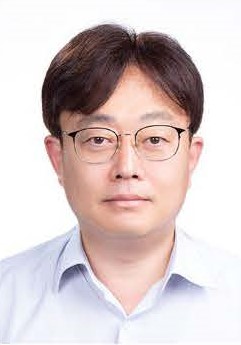Nuclear Power Programs in Korea and Thermal-Hydraulics R&DE of KAERI
| Event Date: | September 25, 2024 |
|---|---|
| Speaker: | Dr. Won-Pil Baek
Senior Research Fellow, and Dr. Kyoung-Ho Kang Principal Researcher |
| Speaker Affiliation: | Korea Atomic Energy Institute (KAERI) |
| Type: | In-person |
| Time: | 3:30 pm |
| Location: | MATH 175 |
| Priority: | No |
| School or Program: | Nuclear Engineering |
| College Calendar: | Hide |
Abstract:
This short lecture will cover the past, present, and future prospects of nuclear energy in Korea. The lecture will begin with an overview of the energy situation and the history of energy policy in Korea. It will also include general information on energy-related topics such as the energy and electricity mix, as well as greenhouse gas emissions. Following this, nuclear energy will be discussed in greater detail with a focus on the significance of nuclear energy, an overview of nuclear power plants, progress and major players in nuclear technology development, available reactor designs, nuclear R&D infrastructure, and the challenges for future advancement.
Nuclear power is a critical, stable, economical, and semi-domestic low-carbon energy source in Korea. Currently 26 commercial nuclear reactors, mostly pressurized water reactors, supply about 30 percent of the nation’s electricity. Two reactors are under construction, two more will begin construction in a few months, and three additional units are planned to be connected to the grid by 2038, according to the recent government plan.
Korea has successfully pursued technology self-reliance and advancement programs from the 1980s to the 2000s alongside the construction of nuclear power plants. The representative product of these efforts is the APR1400, with eight units in operation and four units under construction. There are also customer-specific designs such as US-APR1400, EU-APR1400 and APR1000. Additionally, there is a potential for the construction of APR+ (1,500 MWe) both domestically and internationally. Current development activities are focused on SMRs, with the i-SMR (PWR) being the short-term priority, and SFR, VHTR, and MSR being considered for the longer-term perspective.
Bio:
Dr. Won-Pil Baek is currently a Senior Research Fellow at the Korea Atomic Energy Research Institute (KAERI). Since joining KAERI in 2001, he has held several key leadership roles, including Director of Thermal Hydraulics and Severe Accident Research Division, Vice President for Nuclear Safety Research, Senior Vice President for R&D Programs, Executive Vice President, and Acting President.
Dr. Baek studied nuclear engineering at Seoul National University and the Korea Advanced Institute of Science and Technology (KAIST). Before joining KAERI, he worked as an engineer at Doosan Enerbility and as a research professor at KAIST.
Dr. Baek is currently one of twelve members of the Presidential Advisory Council on Science and Technology and has also contributed to various advisory committees of government ministries. He is the immediate past President of the Korean Nuclear Society (KNS) and chaired the KNS Committee on the Fukushima Accident. Additionally, he served for more than 10 years as a Vice-Chair for the Committee on the Safety of Nuclear Installations (CSNI) and the Steering Committee (SC) within the OECD Nuclear Energy Agency.
He has co-authored several books, including Nuclear Safety (1998), Nuclear Debate (2017), and Fukushima Nuclear Accident: Controversy and Truth (2021), all published in Korean. He is a Nuclear Reactor Thermal-Hydraulics (NURETH) Fellow of the American Nuclear Society and has been honored with the Order of Science and Technology Merit by the Korean Government. He also received the Distinguished KAIST Alumni Award in 2017.
Abstract:
The Reactor System Safety Research division is dedicated to ensuring the highest level of nuclear safety and disseminating critical knowledge through the development of innovative technologies in thermal-hydraulic safety and the integration of related technologies. In order to prevent multi-failure accidents and enhance the defense-in-depth capabilities of reactor systems, we developed and validated a prototype of an integrated analysis platform linking the core, reactor coolant system, and containment, and established a comprehensive experimental database. Additionally, we launched a thermal-hydraulic safety validation project to evaluate and verify the safety of innovative small modular reactor (i-SMR) and produce safety analysis data supporting for licensing process. The conceptual design of major test facilities including an integral effect test and two separate effect tests are in progress. Furthermore, to secure the competitiveness of the domestic nuclear industry, we conducted research on the core flow distribution test of APR1000, IBLOCA safety analysis, and the development of thermocouples for reactor coolant level monitoring. As an international cooperation, we have been operating the OECD/NEA ATLAS international joint project since 2014 with an aim of safety evaluation of light water reactor and validation and improvement of safety analysis codes. 19 organizations from 11 countries including US-NRC participate in the third phase of ATLAS project. The fourth phase of ATLAS project will be started from January 2025.
Bio:
Dr. Kyoung-Ho Kang is working as a principal researcher at KAERI since 1995. His major research interests include thermal hydraulic integral effect testing and system-scale safety analysis for pressurized water reactor. He was also involved in the experimental program for verification of new safety systems implemented to the advanced light water reactors such as APR1400, APR+ and iPOWER. Since 2014, he has been playing a leading role in coordinating the OECD/NEA ATLAS international joint project with an aim of enhancing safety analysis technology and resolving safety issues. Dr. Kang is currently working as a director of reactor system research division at KAERI and is fully responsible for the thermal-hydraulic safety R&D. He also joined the faculty member of the department of advanced nuclear system engineering of UST from 2015.
2024-09-25 15:30:00 2024-09-25 16:30:00 America/Indiana/Indianapolis Nuclear Power Programs in Korea and Thermal-Hydraulics R&DE of KAERI MATH 175


